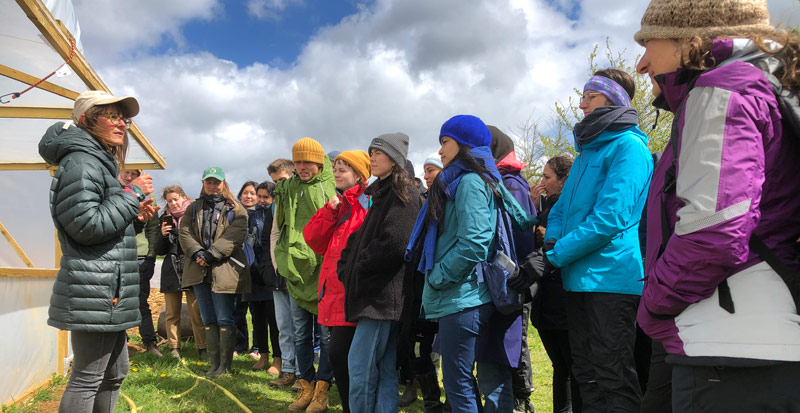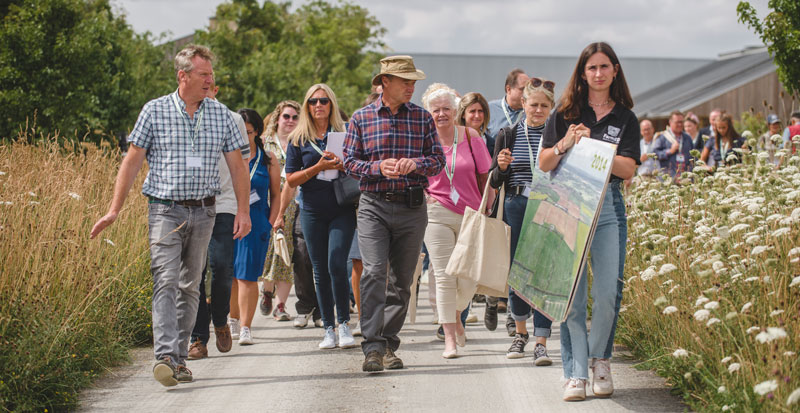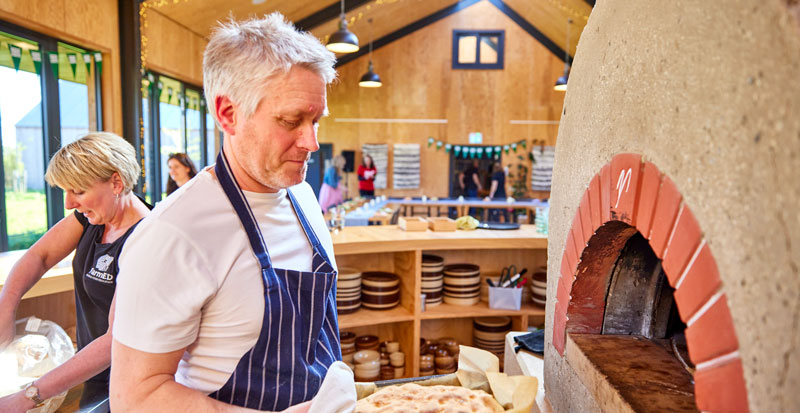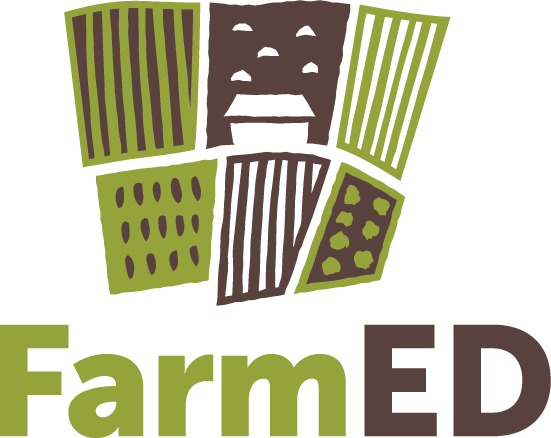Join local craftsman, Joe Southeard for a talk about the meditative art of spoon carving, as he takes us through the process of turning a freshly felled log into a beautifully finished spoon, with just a few basic hand tools.
Discover our orchard when it's at its peak of beauty - in blossom!
Explore Honeydale Farm on an inspiring and informative guided farm walk, led by Founder, Ian Wilkinson or a member of the FarmED team.
As part of the Agroforestry Open Weekend 2025, discover what we do at FarmED, and the benefits and challenges of agroforestry.
Are you looking to acquire a new skill? Want to know how to repair walls on your land or in your garden? Or simply want to know more about these quintessential features of the Cotswold Landscape? Join us for two days to pick up this traditional skill.
Explore Honeydale Farm on an inspiring and informative guided farm walk, led by Founder, Ian Wilkinson or a member of the FarmED team.
Explore Honeydale Farm on an inspiring and informative guided farm walk, led by Founder, Ian Wilkinson or a member of the FarmED team.
Hear local artist, Judith Yarrow, talk in depth and explain what drives her recent work.
Explore Honeydale Farm on an inspiring and informative guided farm walk, led by Founder, Ian Wilkinson or a member of the FarmED team.
Honey isn’t as simple as it seems, and FarmED beekeeper Tony Yarrow is here to reveal its secrets and surprises.
Explore Honeydale Farm on an inspiring and informative guided farm walk, led by Founder, Ian Wilkinson or a member of the FarmED team.
Learn the basics of setting up your own vegetable garden from Dan Betterton, one of The Kitchen Garden People on our farm.
Are you interested in becoming a beekeeper? Do you want to discover the fascinating world of honeybees?
Explore Honeydale Farm on an inspiring and informative guided farm walk, led by Founder, Ian Wilkinson or a member of the FarmED team.
Join us for a magical Saturday evening to celebrate Summer Solstice, with delicious food, music and wholesome activities.
When was the last time your windscreen was splattered with insects? Our insects are in decline, so what can we do to help them?
Explore Honeydale Farm on an inspiring and informative guided farm walk, led by Founder, Ian Wilkinson or a member of the FarmED team.
Explore Honeydale Farm on an inspiring and informative guided farm walk, led by Founder, Ian Wilkinson or a member of the FarmED team.
Would you like to uncover the edible and ecological secrets hiding in the hedgerows, trees and fields around you? Join us for a foraging walk, connect with nature and nibble on our abundant wild larder.
Learn everything you need to know about how to establish and manage your own wildflower meadow, however large or small, just like our courtyard at FarmED!
Explore Honeydale Farm on an inspiring and informative guided farm walk, led by Founder, Ian Wilkinson or a member of the FarmED team.
For people with little or no agricultural experience who are either entering a career in the rural sector or would like a basic knowledge of farming and food production.
Discover the benefits of introducing herbal leys into your rotation with this one day course, and leave feeling confident in your abilities to plan and manage your own system.
Explore Honeydale Farm on an inspiring and informative guided farm walk, led by Founder, Ian Wilkinson or a member of the FarmED team.
Join us for a informative workshop to learn what dung beetles do for us and what we can do for them... Animal dung and dung beetles are often overlooked. But what would happen if we lost these insects and the ecosystem functions they perform?
Explore Honeydale Farm on an inspiring and informative guided farm walk, led by Founder, Ian Wilkinson or a member of the FarmED team.
Grown in Grenada, crafted in the Cotswolds: One family's journey to regenerative chocolate, with 4th generation cocoa farmer Bobbie.
Join us during the holidays for a fun-filled bug hunt around the farm!
Learn how honeybees live in the wild and how we can support these wonderful pollinators in this session with beekeepers, Tanya and Esme Hawkes.
Join us during the holidays for a fun-filled bug hunt around the farm!
Join us during the holidays for a fun-filled bug hunt around the farm!
Join us during the holidays for a fun-filled bug hunt around the farm!
Join us during the holidays for a fun-filled bug hunt around the farm!
FarmED is working with 3LM, The Savory Network Hub in the UK and Ireland, to deliver 12 days of comprehensive holistic management training in 2025.
Would you like to uncover the edible and ecological secrets hiding in the hedgerows, trees and fields around you? Join us for a foraging walk, connect with nature and nibble on our abundant wild larder.
Improve the health of your horse and extend the grazing season by improving pasture management and increasing species diversity.
Discover why investing in your gut health - starting from the ground up - could be your best decision yet!
Learn how to grow, work, and live regeneratively through permaculture principles on this two-day certified course.
Bring your team
Looking for a venue to bring your whole team for an inspiring away day?
What does an away day at FarmED look like? Enjoy a fully facilitated day, hosted by one of our team, who will lead the conversation around farming, food and climate change. An away day on our beautiful Cotswold farm includes a nourishing and seasonal farm to fork lunch and delicious refreshments throughout your visit.
We can tailor any of our courses and events to suit the needs of your organistion. Please get in touch for more information.
Quick facts
...decrease in UK farmland bird species since 1970.
National Food Strategy, 2021.
...times more food is produced globally today, compared to 1960.
National Food Strategy, 2021.
...million hectares are farmed in the UK, made up of 200 thousand farm holding.
GOV.UK, 2021.
What happens at FarmED
Learning
Our FarmED team and other experts share their knowledge about regenerative farming, sustainability, food and biodiversity, from introductory level through to deeper dives.

Meeting
Join us at FarmED for your team away day, meeting or own event in our stunning Conference Barn or Library. We offer an inspiring and welcoming space for your team to enjoy their own bespoke experience.

Eating
Visit the FarmED Cafe to enjoy delicious, nourishing, seasonal food, fresh from the farm. Savour the stunning views over the Evenlode Valley and get a flavour of all that FarmED has to oer.

Bring your group for a bespoke experience
Contact us


